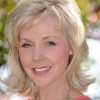Advances in prenatal testing have led us to an ethical crossroads where we must confront many questions about the value and dignity of the disabled:
• How many lives are being lost to abortion due to prejudice, whether for cosmetic concerns or non-lethal issues like Down’s syndrome?
• Is suffering the full-time fate of the disabled?
• What of the stereotype of the jolly and always-inspiring disabled?
• How can we experience both the joy and responsibility we have to uphold those less-abled than ourselves?
• How do we reconcile protecting the rights of the disabled, yet denying those rights before birth?
Gerard Nadal, PhD is Executive Director of The Children First Foundation and past National Director of Medical Students for Life of America. He leads a discussion about these questions and more:
• How accurate are the diagnoses, and how often do physicians err in order to protect against litigation?
• What happens when women abort after a poor prenatal diagnosis?
I know many who aborted under medical advice suffer a tremendous weight in the aftermath. We can provide hope, and encourage those who may be currently struggling with a poor prenatal diagnosis, or as caregivers.
Wrestling with these questions is central to our understanding of what it is to be human. I’m inspired by Victor Frankl who survived the death camps of Nazi Germany where the rest of his family, including his pregnant wife, perished. He went on to write a seminal work on the power of the human spirit, Man’s Search for Meaning. Frankl keenly observed that no oppressor, no matter how brutal or evil, could remove one’s ability to choose his or her own attitude and response to the oppression.
Although I read the book years ago, I am still struck by Frankl’s eloquent refutation of Darwin’s theory. I’m paraphrasing, but this is Frankl’s central truth:
In Nazi Germany, the fittest humans–the best and most noble people–died first, sacrficing their safety in defending the lives of others.
It’s a lesson we still need to learn.
Too many of us still believe that the physically weaker members of society carry a negative value and thus should be destroyed before they are even given a chance to live. Eugenics abortion of the disabled is happening on a worldwide scale. In the US, 92% of babies diagnosed with Down’s syndrome will be aborted; in the UK club foot can carry a death sentence; in India cleft palate. None of these conditions is life-threatening, but each may demand lifestyle adjustments many parents are simply unwilling to make. Is the issue just that simple?
Gerard Nadal is a bioethicist and father to a special needs child. He is uniquely qualified to provide wisdom and direction on this critical issue of our time.
Protecting the weakest of the weak
From Nadal’s bio:
Dr. Gerard Nadal He holds a Bachelor of Arts degree in Psychology with a minor in Philosophy from Saint John’s University, New York City. After his post-baccalaureate sciences at Columbia University, New York City, Dr. Nadal returned to Saint John’s University where he received his Master of Science in Cellular and Molecular Biology, Master of Philosophy in Biology, and Ph.D. in Molecular Microbiology. Also a member of University Faculty For Life and the Catholic Writers Guild, Dr. Nadal is a columnist for Headline Bistro. Dr. Nadal also serves on several advisory boards, including the Coalition on Abortion/Breast Cancer, and Good Counsel Homes. He is A Fourth Degree Knight of Columbus and unapologetic Roman Catholic loyal to the Magisterium, Dr. Nadal and his wife home school their three children. He blogs at Coming Home.
When we launched Cradle My Heart Radio in 2012, a large part of our mission and vision was to create a safe space to share our stories. Now helping us fulfill that mission is our partnership with the Silent No More Awareness Campaign. The Campaign helps women and men prepare to speak out in safety for the benefit of others.
This week we welcomed Leslie Blackwell, co-regional coordinator for the Silent No More Awareness Campaign for Virginia. Her story of choosing abortion to protect her career resonates with many women who acted to eliminate a perceived threat to reputation and future earnings.
Highlight – Silent No More Awareness Speaker Leslie Blackwell






















